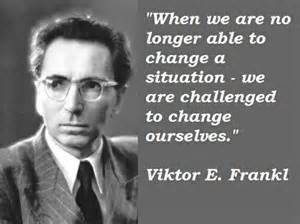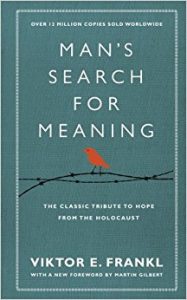As I write this, it was a year ago to the day I was invited into a local prison to speak to a group of male inmate members of a group called, Recovery Café. I had never been in prison before in any capacity and welcomed the opportunity to visit and talk to these men who were allowed time to meet regularly to discuss and participate in things that could in some way enhance their lives, both in prison, and when the time came to leave and move on with their lives.
The community recovery initiatives website states: “Members take ownership of the Café, and actively contribute to the rehabilitation process, to assist a recovery focused transition from prison into the community.”
If you google “Recovery Café” here is what you will find:
The Recovery Café is a phenomenon started in the U.S. that has been taken up in the UK in the past ten years. The concept is to provide an alcohol-free social environment where people in recovery can socialise without being judged or scrutinised.
I had arranged to meet at the prison entrance with Jamie, the community Recovery Development Worker who facilitated and supported this particular Recovery Café group within the prison. Jamie had previously invited me to visit another Recovery Cafe in town. These visits had given me valuable insight into the type of activities and support available at these gatherings for people in recovery. I was greeted on each occasion including later within the prison group, with a warm welcome and offered coffee and snacks. I found it a relaxed, comfortable friendly environment. I had the opportunity to talk to the groups, and at one meeting, a chef came in to discuss an upcoming cooking class and menu and I experienced qigong* facilitated by a local martial artist which was fantastic and I highly recommend it if you get the opportunity to participate in a class.
I spent some time considering what to talk about and prepare for my visit to the prison. It was scheduled for two hours and I wanted to serve these men the best I could and hopefully offer something to them of value. As I had never ‘walked in their shoes’ so to speak I didn’t have that experience or frame of reference to draw upon. Here is what I came up with which I hope serves you in some way with a sense of your own perspective and appreciation for your life wherever you are and whatever your circumstances …
I decided to talk about three people. All of whom I felt relevant to this particular group of men and with a powerful message of inspiration from others’ experience of imprisonment, tragedy, addiction, torture and impending death on a daily basis. The three people I decided to talk about: Nelson Mandela, Eric Clapton, and Viktor Frankl.
Nelson Mandela – A name well known around the world. A leader in the anti-apartheid human rights movement in South Africa. He spent 27 years in prison from age 44 until 1990 as a result of his activities to end apartheid laws. He emerged from prison a man of continued intention and resolve to end apartheid and to lead a peaceful outcome which came about in 1991. He went on to become the first black president of South Africa and shared the Nobel Peace Prize in 1993 with then President Frederik Willem de Klerk who he succeeded.
My motivation for choosing Nelson Mandela was to instil some contemplation and offer perspective for the men I was sharing this time with. Some of the young men I was talking to looked younger than 27 years old, their entire life to that point not yet as long as Nelson Mandela’s incarceration.
If Nelson Mandela had emerged from his prison sentence filled with anger and revenge, history would have been very different. History has shown us the result of other influential leaders who incite war and violence as a way to pursue their cause. Instead, Nelson Mandela emerged a purposeful, peaceful and forgiving man with his persistent resolve for the same cause that had him imprisoned. He used his influence and popularity with his supporters and positively changed the lives of millions and his legacy continues to inspire people throughout the world.
My message was that we can act upon any personal choice or decision we want, whatever our circumstances or past. We can choose peace or war, cooperation or conflict, love or hate. We can also put the past behind us and make a fresh start in a moment. We can forgive and move onward with a sense of purpose not just for personal good but in the case of Nelson Mandela for the collective good. We can learn and grow from all our life experiences for our own benefit and for others. Nelson Mandela is testament to that, and his legacy lives on.
The quote within the picture below with Nelson Mandela puts it powerfully and succinctly. I wasn’t suggesting that anyone in the local prison group held bitterness or hatred and I’m not implying it here. I am saying even though we may have seemingly strong justification for feeling anger or hatred it can lead to more personal and collective suffering. Letting the past go is a source of power, good health and well-being, never weakness.

Eric Clapton – When I asked the men if they knew who Eric Clapton was no one initially seemed to recognise his name. Mentioning he is arguably one of the best guitarists in the world didn’t ring any bells either. I also discovered bands he played guitar and sang with like Cream and The Yardbirds were well before their time!
It was when I introduced my intended relevance some in the group made the connection. I went on to talk about Eric Clapton’s 4-year old son who tragically died after accidentally falling through an open window fifty three floors up in his home in New York. When this news spread many of Eric Clapton’s close family and friends expected him to revert back to his previous addictions to alcohol and drugs. I later heard him talk about this in a documentary. I watched and listened to him being interviewed about how he responded hearing the tragic news about his son. He said many of his closest friends expected him to revert back to his alcohol and drug addictions to cope. They even said they would understand if he did.
Instead, Eric Clapton made a different choice and was able to connect with his creativity to co-write a song in honour of his late son titled “Tears In Heaven” which became an international hit reaching #2 in the U.S. and #5 in the British charts. When I mentioned this song to the men and the story behind it most of them remembered it and made the connection. One man in the group shouted out the song title before I did.
My intended message here. Even with the experience of personal tragedy, shock, the sudden loss of a child it is still possible to create music, inspire, and leave a poignant legacy for the rest of us. Whether it be by our actions or non-actions. Many who may feel life is a struggle or hopeless can learn and find possibilities and hope from the experiences of others. You will find a link to the song on YouTube at the foot of this blog.
Viktor Frankl – Author of the international best selling book “Man’s Search For Meaning.” Viktor Frankl was an Austrian neurologist and psychiatrist working in Vienna at the outbreak of World War II. He was also a Jew who would spend three years in concentration camps including Auschwitz and Dachau between 1942-1945. He was a Holocaust survivor.
I have read his book several times and I have recommended it countless times and took my copy into the prison that day. He did not choose to write a morbid account of his time in these camps but he wrote of some personal experiences in a way that for me, had me profoundly reflect and appreciate how fortunate I am in so many ways. I invite others to read it for the same opportunity. We all have challenges, limitations and many of life’s events are outwith our control, but we always have the power to choose our thoughts and actions from the meaning we place on things. This was my motivation to talk about this great man at the local prison that day. As challenging as their present circumstances, I invited them to consider being imprisoned in the conditions of Viktor Frankl.
For Viktor Frankl and his many fellow prisoners in these camps, upon waking each day, they knew it could be their last. He writes of the number of times death came close and sometimes by ‘luck’ (as he put it) his purpose to stay alive and the meaning he applied to his suffering provided him the will and ability to keep going. He describes how many men around him who appeared fit and healthy, perished quickly not only from ill-health or execution by their captors but by their sheer will of mind to die. His torment and agony didn’t end on his release. Liberation may have been a time of even greater challenge for him as he discovered the very reason that drove him, his will to stay alive, no longer existed.

What was Viktor Frankl’s meaning and purpose? … To reunite with his beloved wife and family. To rebuild his life and psychiatric practice if he survived. After his release he was to discover his suffering, and the suffering for the few who survived and were liberated with him did not end with their freedom. They would learn that their families and loved ones were long dead and their homes and places of work destroyed. His book describes what we are capable of way beyond physical survival. He went on to create a whole new field of psychiatry he called ‘logotherapy’ which is founded on the belief that human nature is motivated by the search for a life purpose. This was influenced by his personal experiences of suffering and loss in Nazi concentration camps.
Viktor Frankl went on to be highly influential in his field, found love again and re-married.
I hoped that by sharing the real-life stories of these three men that the small group in the local prison would reflect on their current circumstances and be inspired to create a purposeful life for themselves too. I knew their present location, in prison and part of the Recovery Cafe. Beyond that, I only had their first names and no other details why they were there or for how long. I hoped they might reflect and put their own meaning on their current circumstances and may find some inspiration to positively change their ‘inner world’ and the world around them in their remaining time there and on their liberation. A purpose to support them to make a fresh start and create a life afresh. Like all three men above, they had this innate power and potential. We all do as hard and as painful and desperate as it may seem. We can focus our thoughts on a purpose and meaning which can support both our survival and ability to thrive and make a positive impact.
I hope you found some value in this post. None of us makes this journey called life without some degree of struggle, hardship and pain. No-one is exempt. Some are born right into it by time, place and circumstances totally outwith their control. We can be in the ‘wrong place’ at the ‘wrong time’ and for all kinds of reasons end up in jail or worse. The very best we can do sometimes is to accept our current circumstances as best we can. With wisdom, intention, and resolve we can make a fresh start wherever we are. Develop a fresh personal empowering philosophy to live by. Make a decision to make the best of it for now and keep the faith and belief alive that we can have a better life and by extension benefit others.
We won’t all lead a nation, create a hit song, or write an iconic book, but we can be the leader in our own lives, focus our own thoughts, and how we choose to represent the world and in our way we can make a positive difference and leave an inspiring legacy with the time we have.
*Qigong, qi gong, chi kung, or chi gung is a holistic system of coordinated body posture and movement, breathing, and meditation used for health, spirituality, and martial arts training.
Eric Clapton plays Tears In Heaven for the first time
If you are part of a group or organisation interested in exploring how the holistic health approach can enhance mental health, just get in touch. I can tailor any talk, seminar or workshop to your specific needs. CLICK HERE for more information and some of the topics I cover.
For more information and resources specific to you just get in touch.


Thank you Gordon. Very thought provoking. Its amazing what these 3 men managed to achieve while suffering so much in there own lives. It makes me remember how lucky I am and we all need reminders at times. Thank you for sharing this. ✌
Thank YOU Angela 🙂
Hi Gordon, We all create our own personal prisons at times when we don’t let go and move on .
These guys are exceptional. But so are our own circumstances when we are challenged. I reckon you did well at the prison. Good stuff Gordon.
Thanks very much Gary. You’re 100% spot on. Really appreciate you taking the time to read it and for your wise comments. ~ Peace